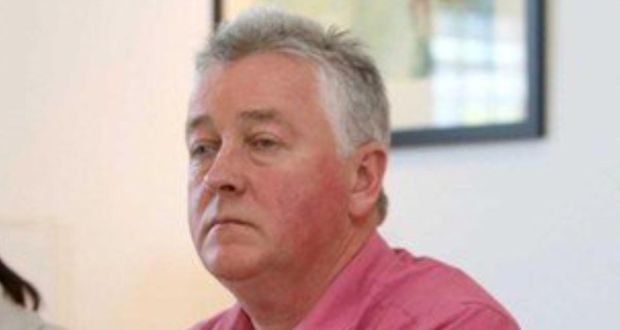
Paul O’Connor admits past IRA membership
Assistant Chief Constable George Clarke said that police were aware of claims made in a blog from former IRA bomber turned arch-critic Shane Paul O’Doherty earlier this week.
He said that police were also aware of media coverage of Mr O’Connor’s IRA past.
“We are aware of claims made in a blog published online earlier this month, and of subsequent press reporting in relation to those claims, and we will now consider them,” ACC Clarke said in a statement.
O’Doherty served 15 years in jail for a letter bomb campaign in England in 1976. While in prison he turned against the republican movement and has become one of its greatest critics.
In a blog published last week, O’Doherty claimed Mr O’Connor was a close teenage friend and that they were “sworn in” to the IRA together as 15-year-olds in 1970.
He claimed Mr O’Connor took part in various IRA activities.
Mr O’Doherty also alleged another teenage IRA member, Jim O’Hagan (16) died in Mr O’Connor’s family home in 1971 after being shot in a in a nearby IRA bomb-making factory.
He claimed: “There had been an argument between Jim O’Hagan and another IRA volunteer during which a gun was placed against Jim’s chest and the trigger was pulled. A bullet passed through Jim, wounding him fatally, though he lived for a short time. The gunman dropped the gun and left the scene.
“Two of the others present carried the wounded Jim past the nearest inhabited house and beyond – to the home of Paul O’Connor.”
O’Doherty, who said he was not present at the incident, alleged: “Jim was carried to a bedroom where he ultimately died. His last words were: ‘The pain, the pain’.”
Mr O’Connor strongly denied his former friend’s account.
He told The Irish News on Saturday that he was not present in the barn at the time of the shooting as he was at home sick.
He said he recalled that on the night in question two people arrived at his home carrying the wounded teenager.
“I told them to get off side which they did however they were arrested later that night at home, one of them was a minor,” he said.
With his brother, Mr O’Connor said they considered taking Mr O’Hagan to Letterkenny General Hospital but instead called an ambulance and Mr O’Connor’s brother went to fetch the dying youth’s father.
“I got off side. It was clear that we were bringing down all hell,” he said.
Mr O’Connor said Mr O’Hagan did not die in his home as claimed by O’Doherty but in hospital shortly after his father arrived.
He said he has discussed the youth’s death with the teenager’s parents.
After taking refuge in ‘Free Derry’ Mr O’Connor said he and other IRA members were moved through a series of ‘safe houses’ to Co Kerry.
He later moved to Dublin but returned to Derry after Bloody Sunday in 1972.
Confirming that he joined the IRA as a teenager, Mr O’Connor said he was highly politicised and came from a political family.
He said he was proud of his father who had fought with the IRA in the Irish War of Independent and went on the run almost 50 years before he himself did so.
While he took part in IRA activity, Mr O’Connor said he was not responsible for Provisional’s bombing campaign in Derry city centre as he was unable to leave the Free Derry area.
“I did not create victims; that is absolutely clear, none.”
UUP MLA Doug Beattie has called on police to “robustly investigate” the activities of Mr O’Connor “as a matter of extreme urgency”.
He said that the matter could not be glossed over because of Northern Ireland’s past.
“Anywhere else in Europe, if the Director of an organisation supposedly dedicated to the pursuit of ‘human rights’ and ‘truth recovery’ was found to have been a member of an illegal terrorist group that was guilty of thousands of crimes including the murder of children, there would be an uproar,” the UUP justice spokesperson said.
“The fact that there is not, says a lot about the current situation in Northern Ireland, where we have become conditioned to the truth being twisted and subverted, as the local, self- appointed ‘human rights industry’ is given an almost free run in its campaign to rewrite history.”
Mr Beattie said that organisations who fund the PFC, including the Irish government and European Union, may wish to re-examine their position following Mr O’Connor’s admission.
“The PFC receives a great deal of funding from a variety of sources and I am sure that many of those will be watching anxiously and wondering just exactly who or what they have been financing,” the Upper Bann MLA said.
The PFC is a registered charity and describes itself as a “a non-party political, anti-sectarian human rights group advocating a non-violent resolution of the conflict on the island of Ireland”.
Tags:




